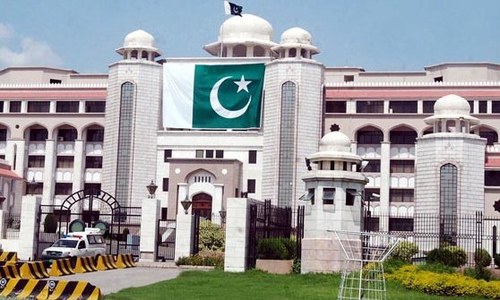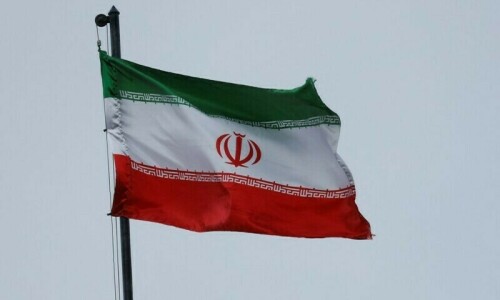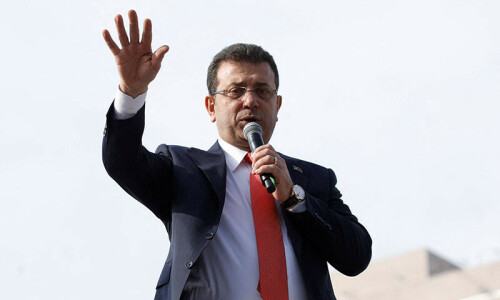ISLAMABAD: A Senate committee on Tuesday rejected a bill for the establishment of a university at the PM House as promised by Prime Minister Imran Khan.
The Senate Standing Committee on Education, which met at the Parliament House with Senator Irfanul Haq Siddiqui in the chair, held a detailed discussion on the ‘Pak University of Engineering and Technology Bill 2022’.
The members were of the view that instead of spending billions of rupees on a new university, that too in the PM House, the government should strengthen the already existing universities.
At present, there are 141 public-sector universities and 15 of them are for engineering and technology. Public-sector universities have been complaining of shortage of funds, however, the government is adamant at starting the new university.
Members say instead of spending billions on new project, govt should provide funds to existing universities
The committee members said new disciplines and subjects could be incorporated in the existing universities and the financial resources could be utilised to enrich the institutions.
The committee chairman, who belongs to the opposition PML-N, said there was no ill will but the committee was rejecting the bill in the larger interest of the education sector.
Later, speaking to Dawn, the committee chairman said: “Actually, there is no need for this university; the government wanted to spend billions of rupees on this political project.”
He said it was unfortunate that many universities had been facing an acute shortage of funds even for paying salaries but the government wanted to spend over Rs23 billion on the new university project.
Senator Siddiqui said that education and religion should be kept separate from politics.
Proposed disciplines, which the government wants to start in the new university, should be started in the existing universities in the capital such as Quaid-i-Azam University (QAU), he added.
Secondly, he said, before rejecting the bill the committee also discussed concerns related to expected security lapses if the university was set up in the PM House.
Five of the seven members present at the meeting belonged to the opposition and two to the ruling PTI.
The committee rejected the bill 5:1, as one of the PTI members, according to the chairman, did not take part in the voting process.
Last year, the National Assembly Standing Committee on Education had passed the bill and after approval from the house it was sent to the Senate.
The Senate house referred it to the committee for consideration.
According to the working paper, which was presented before the NA committee last year, the university will have seven centres of excellence; three to be set up in the PM House and four in Kuri area of Islamabad on state land. The committee was told that six years were required for completion of the project and the government had already earmarked Rs23 billion for the project.
Sources in the PTI said the government wanted to start the project during the tenure of the PTI government and for this purpose the university could be opened in a rented building.
Last year, officials from the Higher Education Commission and the Capital Development Authority (CDA) on the direction of the Prime Minister Office had visited Sir Syed Memorial Society building in G-5 to start the temporary campus there. However, later this proposal was shelved.
Meanwhile, the standing committee unanimously passed the ‘Bill for Right to Free and Compulsory Education (Amendment) Bill 2022’ moved by Senator Fawzia Arshad.
The bill seeks to provide maximum flexibility to the disadvantaged children in getting education so that their constitutionally guaranteed right is protected and upheld.
Senator Fawzia Arshad said there were many disadvantaged children in Islamabad who could not get education in the formal way due to their weak socioeconomic conditions. Through this bill, along with the existing mechanism, an informal way to educate the disadvantaged children is suggested for which the government may collaborate with non-governmental organisations, corporate bodies, international organisations and individuals, she said.
The committee also approved all PSDP education-related projects.
The committee was informed that there were 33 projects out of which 17 were ongoing and 16 new.
The proposed budget makes a total of Rs12.48 billion out of which Rs3.39 billion are to be met by foreign aid and the remaining locally.
The committee sought recommendations for introducing projects for teachers’ training. The meeting recommended establishment of a school for transgender people. It also approved budgetary proposals of the National Heritage and Culture Division.
Published in Dawn, March 16th, 2022















































